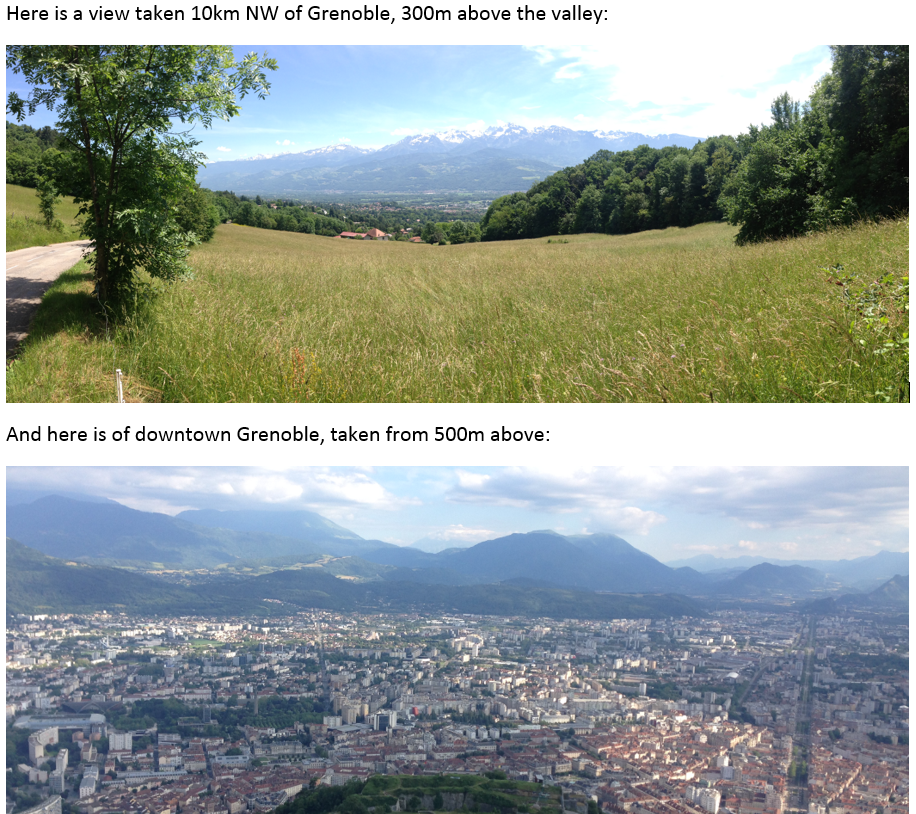
Uploaded on 2016-07-16 by Jos Rozen
> 1. Check the temperature difference in US Cities I lived in Washington, D.C., for 6 years in the nineties. It was indeed hot in the city. According to Climate Central, summers are 4.7°C hotter than rural areas –they even say it’s up to 21°C hotter than nearby rural areas. > 2. Which are the main UHI effects that you can identify in your area? Grenoble, France, is located in the French Alps. It has a continental climate influenced by the nearby mountains (Belledonne, Chartreuse and Vercors) : summer are hot and winter can be very cold. Sunshine abounds in the summer and the basin often overheats. That’s true for the whole valley not only for the city : one has to go up, in the mountains, to find fresher air. The most notable differences are between the greener areas of the city and the buildings, especially at night where the greater thermal inertia of buildings keeps these areas warmer. Therefore UHI phenomena is more pregnant at night when low temperature can be 5°C higher in some places –according to a 2006-7 study this difference is much smaller during the day, less than 2°C. Periods of subsequent hot days often result in difficult times inside the city, mostly because it keeps the heat during the night: there’s simply no reprieve from it for the inhabitants. > 3. Which are the measures you would propose? Greener is cooler ? I’d certainly suggest adding more trees in the city even if that means taking part of the streets away from the driver –that could also help fighting the congestions plaguing the cities #rideyourbike. Or greening the roofs –that might also improve the insulation. Or creating urban gardens –also good to tie a community together. Surprisingly, according to the reference study, the Isère River crossing the city does not help in keeping it fresh: it might be because it’s mainly ignored and isolated from the streets by high walls. I’d also suggest being closer to the water. Yes, I do know about floods –and Grenoble has had its share https://fr.wikipedia.org/wiki/Inondation_de_Grenoble_en_1219 ¬– but originating from Brittany, I know how efficient water can be in cooling a place. 4. Is UHI effect concerning policy making in your area? This city is indeed working on this issue, cf the reference study. And it is greening the city looking for ways to preserve the existing areas, as well as regain some of the lost ones. It’s also working with private owners to vegetalize parkings, roofs and building surroundings. The city is also studying the impact of materials used in building constructions : there could be a huge gain in using material less prone to keep the heat but instead reflecting it as much as possible.